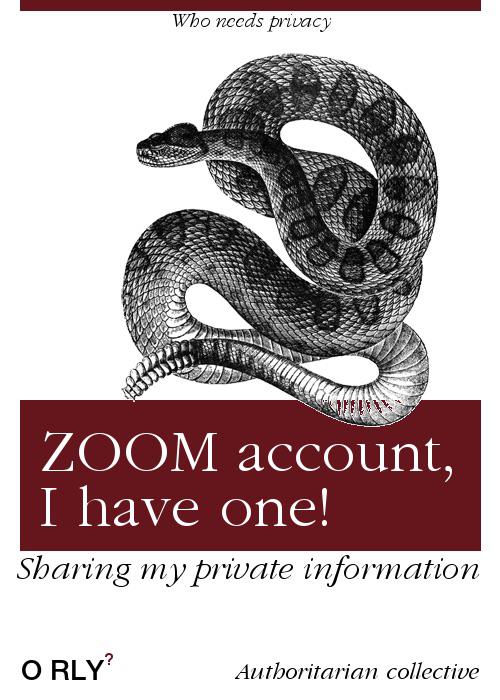
In the grand digital agora of Cyberspace, where the exchange of ideas flows as freely as the data streams that crisscross its vast expanse, there arose a colossus named ZOOM. A marvel of the modern age, ZOOM became the linchpin of communication, a virtual crossroads where paths intersected across the globe. Here, in the boundless halls of digital discourse, individuals from every corner of the earth could gather, their voices bridging the divides of distance and time.
Our tale centers on a stalwart voyager of the internet, Jordan, who, like countless others, sought to wield the powers of ZOOM to forge connections in an age where physical gatherings were oft but a dream. "ZOOM account, I have one!" Jordan proclaimed, a declaration of readiness to engage with the world in the new forum of choice.
But as Jordan ventured deeper into the realm of virtual meetings, a shadow loomed on the horizon, a specter that whispered doubts into the ears of all who traversed the digital byways of ZOOM. This specter was Privacy—or, more precisely, the lack thereof. For in their eagerness to connect, to share, and to communicate, many had not paused to ponder a question of great import: "In opening my digital portal to the world, what have I let in?"
Jordan, undaunted by tales of data breaches and uninvited eavesdroppers, navigated the channels of ZOOM with the zeal of a pioneer. Meeting rooms became Jordan's domains, webinars their stage. Yet, with each click to join or invite, with every shared screen and exchanged chat, Jordan began to notice the tendrils of the specter weaving through their interactions, a subtle reminder that in this new agora, one's private information was currency in a market they scarcely understood.
"Who needs privacy when connection is but a click away?" Jordan mused, a rhetorical question that echoed in the chambers of their mind. But as tales of Zoombombing tricksters and data-harvesting giants reached Jordan's ears, a realization dawned: perhaps privacy was not a relic of the past, but a treasure to be guarded, a right to be upheld even in the face of unparalleled convenience.
Armed with this newfound wisdom, Jordan embarked on a quest not to shun the marvels of ZOOM, but to wield them with care. They delved into the labyrinth of settings, fortifying their account against unwanted intruders. Meetings were no longer open doors but sanctuaries, where entrance was granted with consideration, where data was shared with discretion.
Jordan's journey became a parable for the digital age, a tale of balance between the desire for open communication and the need for privacy. "ZOOM account, I have one!" remained their rallying cry, but it was now a declaration made with awareness and respect for the boundaries that safeguard the individual in the vastness of the digital realm.
And so, in the annals of Cyberspace, the story of "ZOOM account, I have one!" serves as a reminder to all who navigate its boundless territories. It teaches that while the tools of our era offer us the world at our fingertips, they also ask of us a vigilance, a duty to protect not just our private information but the sanctity of our digital selves. In this balance, Jordan found not a restriction, but a liberation—a way to connect deeply and meaningfully, while still standing sentinel over the gates of their privacy.